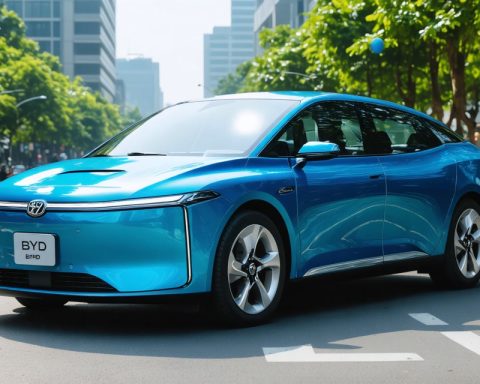In a landmark collaboration, FuelCell Energy, Inc., a pioneer in hydrogen technology based in Danbury, and Korea Hydro & Nuclear Power Co., Ltd (KHNP), Korea’s energy giant, have embarked on an ambitious mission to transform the energy landscape in South Korea. This partnership comes as both industry leaders committed to an innovative agreement that brings together cutting-edge hydrogen technology and traditional nuclear power.
The collaboration centers around an innovative hydrogen platform developed by FuelCell Energy. This system uses a sophisticated process that integrates electricity and heat, making hydrogen production more efficient and cost-effective. The solid oxide electrolysis technology at the heart of this system can produce hydrogen at nearly 90% efficiency, achieving full efficiency with the addition of external heat.
With South Korea aiming to reduce its reliance on imported fuels, this initiative could significantly bolster the country’s self-sufficiency in clean energy. By harnessing domestic renewable energy sources such as wind, solar, and hydro, and tapping into KHNP’s vast network of electric generating power plants, this partnership promises to deliver long-lasting impacts on energy sustainability in the region.
KHNP recognizes the strategic importance of this agreement in pushing the boundaries of their energy capabilities, while FuelCell Energy looks forward to the renewed innovation potential that such a partnership brings. Together, they visualize a future where hydrogen is not only a fuel but a cornerstone of global energy transition, benefitting communities worldwide.
As these two powerhouses forge ahead, their collaboration is being heralded as a potential game-changer in the drive for a more sustainable energy future.
Revolutionizing Energy: How the Hydrogen Revolution is Changing South Korea’s Future
In recent years, hydrogen technology has emerged as a key player in the global push for sustainable energy solutions. However, beyond its innovation, what are the implications of hydrogen technology for nations like South Korea, and how might it affect lives and communities?
The recent collaboration between FuelCell Energy and Korea Hydro & Nuclear Power Co., Ltd (KHNP) is not just about technological integration. It signifies a broad shift in how countries plan to harness their energy resources, marking a crucial step forward for South Korea’s energy independence.
Implications for Local Communities
With South Korea’s commitment to reducing its reliance on imported fuels, the use of hydrogen technology can have profound effects on local communities. Areas previously dependent on coal power plants may now pivot to hydrogen-based solutions, potentially revitalizing local economies through job creation in the hydrogen sector. This shift can help mitigate urban migration, promoting balanced regional development.
Moreover, the health benefits cannot be overlooked. With a decrease in conventional coal burning, air quality is likely to improve, reducing health risks associated with pollution. In cities struggling with smog, this change can lead to enhanced public health outcomes.
The Global Stage and Its Controversies
On the international stage, South Korea’s move aligns with global commitments to reduce carbon emissions. The successful implementation of hydrogen technology could bolster South Korea’s reputation as a leader in clean energy. But, the journey is not without controversies.
Critics argue about the sustainability of using nuclear power, despite its low-emission benefits, for hydrogen production. There are concerns regarding nuclear waste and the safety of expanding nuclear energy in earthquake-prone regions. This ongoing debate highlights the need for a balanced approach, integrating renewable energy sources like wind and solar to achieve truly sustainable hydrogen production.
Interesting Facts About Hydrogen
Did you know that hydrogen has the highest energy density per kilogram of all fuels? It’s no wonder hydrogen is being touted as the fuel of the future. Yet, hydrogen occurs naturally in the form of compounds like water and must be extracted, a process that has historically been expensive. Innovations by companies like FuelCell Energy are set to change this, making hydrogen a more accessible and affordable energy source.
Public Enthusiasm: A Double-Edged Sword?
Public enthusiasm for hydrogen as a clean energy source is growing worldwide. However, it’s incumbent upon governments and corporations to manage expectations. As seen with past energy transitions, significant infrastructure investments and policy shifts are necessary for hydrogen to become a widespread solution.
Conclusion: The Path Ahead
The partnership between FuelCell Energy and KHNP is undeniably paving the way for future energy innovation. While hydrogen technology offers exciting possibilities, it also prompts essential questions about the energy transition and its wider implications. How effectively these innovations can be scaled will determine their global validity and long-term viability.
For those keen to delve deeper into hydrogen energy and its prospects, resources such as the FuelCell Energy and KHNP provide comprehensive insights into the latest advancements and strategic developments in the field.














